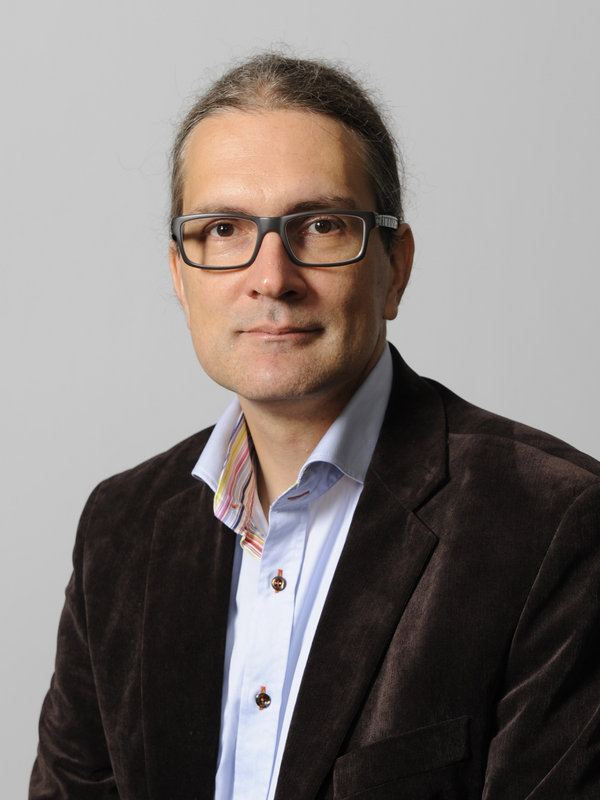

Sustainability and responsibility
Responsibility and ethics are the cross-cutting cornerstones of our University
We produce new information and educate future experts and conscious citizens. We are building a culture in which the principles of sustainable development are realized in our education, research and interaction with various stakeholders in society. Our campus aims for carbon neutrality by 2030.
We are promoting UN's Sustainable Development Goals
Humanity faces formidable challenges as a consequence of its own actions. Global crises such as climate change, biodiversity loss, and social inequality require both local and global solutions. We are also developing solutions at the University of Vaasa. Particularly, our research and education contribute to the following United Nations Sustainable Development Goals (SDGs):

We have a common goal in the region: combating climate change
We are situated at the centre of an international knowledge cluster in the environment and energy sector, EnergyVaasa. This provides our University with excellent opportunities to operate actively in international innovation ecosystems. The surrounding ecosystem comprises global RDI-intensive companies, universities, as well as public and third sector organisations - all with the common goal of sustainable development and combating climate change. VEBIC, the university's research platform that focuses on efficient energy production, energy business and development of a sustainable society, has a major role in this.
Code of Conduct
The purpose of the Code of Conduct of the University of Vaasa is to clarify what it means to act in accordance with our values: courage, community and responsibility. We want to nurture the university as a responsible and ethical community. Furthermore, we want to ensure an internationally high level of research, education and teaching in accordance with ethical principles and good scientific practice.
The Code of Conduct applies to all members of the university community – teachers, researchers and other employees, as well as students and board members – regardless of their position or role in the organisation. We also expect our partners to comply with the Code of Conduct.
University of Vaasa's carbon footprint
The carbon footprint refers to the climate emissions caused by human activity. In 2023, the University of Vaasa’s carbon footprint was around 3.04 thousand tonnes of CO2 equivalent greenhouse gases. The term “carbon dioxide equivalent” refers to the cumulative effect of greenhouse gases, as if they were all CO2. The Greenhouse Gas Protocol (GHG Protocol) is the most widely used standard for calculating environmental impacts. It classifies emissions into three categories:
Scope 1 encompasses emissions over which the organisation has direct influence and control. Emissions occur on-site as a result of the organisation’s own actions.
Scope 2 includes indirect emissions caused by purchased energy from production and other activities, such as electricity and heat usage.
Scope 3 covers all indirect emissions resulting from the procurement of goods and services. These include emissions associated with waste and water management, product procurement, and transportation.
Responsible investments
The investment activities of the University of Vaasa comply with the UN Principles for Responsible Investment. As a responsible investor, we comply with current legislation, legally binding regulations and good governance.
The integration of responsible investment principles into investment activities is carried out in a manner that promotes the principles of safe and profitable investment. By taking into account the principles of responsible investment, the University aims to both increase return potential and reduce return risk and risks related to negative publicity.
The University aims to select asset managers who are committed to following the above-mentioned principles of responsible investment in their investment strategy, processes and selection of investment targets.
Asset managers must have a good reputation and be known for their flawless processes. Asset managers are required to have written guidelines on the practical implementation of responsible investment. In the assessment of asset managers' activities, they are interviewed regularly and are required to report regularly on both the responsibility characteristics of the investments and the asset manager's activities in responsible investment.
The University of Vaasa requires that its asset managers are committed to following the UN PRI Principles for Responsible Investment. The principles address the consideration of ESG factors, i.e. environmental, social and corporate governance factors, in investment activities. As a responsible actor, the University of Vaasa follows good governance and documents investment decisions in an adequate manner.
The University of Vaasa also promotes responsible investment in its research and business education.
The University of Vaasa is a member of Finland’s Sustainable Investment Forum (FINSIF).
More information: Professor Sami Vähämaa, School of Accounting and Finance, tel. +358 29 449 8455
Universities play a key role in combatting and solving climate change
As a result of its own actions, humanity is facing enormous challenges. Declining biodiversity, increasing inequality and climate change are global changes that require action both locally and worldwide. Universities play a key role in combatting and solving climate change and other crises, creating the required expertise and fostering a safe and stable society.
The time for rhetoric is over. We need to move from words to action.
Read Unifi's theses on sustainable development and responsibility
The University of Vaasa is a signatory to the Principles for Responsible Management Education
PRME engages universities and business schools to ensure they provide future leaders with the skills needed to balance economic and sustainability goals, while drawing attention to the Sustainable Development Goals (SDGs) and aligning academic institutions with the work of the UN Global Compact.
By joining PRME, our University has made a powerful commitment to advancing values such as sustainability, responsibility, and ethics in teaching, research and leadership. Over 800 higher education institutions from about a hundred countries belong to the PRME community.
To learn more about the PRME community please visit: www.unprme.org

The University of Vaasa is committed to working towards the Sustainable Development Goals (SDGs)
The SDG Accord is a global network of universities, research institutes, and educational institutions dedicated to the UN Sustainable Development Goals. It intends to increase education’s role in attaining the SDGs. Universities and colleges all across the globe wish to collaborate to emphasise the significance of the SDGs for governments, industries, and society.
The University of Vaasa signed the SDG Accord and became a member of the network in 2021.
Members of the SDG Accord pledge to working towards the SDGs, reporting on their progress yearly, and sharing what they learn with others. The outcomes are presented to the UN high-level political forum on an annual basis.
The SDG Accord’s Annual Report 2023 includes a research case study from the University of Vaasa (p. 17).

Scopus publications from the University of Vaasa and the SDGs
The University of Vaasa is dedicated to advancing the United Nations Sustainable Development Goals (SDGs), prioritizing those that align with our expertise and hold the greatest potential for positive societal impact. Our specific goals are SDGs 7, 8, 9, 11, 12, and 16. The table below displays the number of publications linked to the selected SDGs, as retrieved from the Scopus database. The SciVal analysis suggests that SDG 13 (climate action) is likewise highly related to our research efforts.
| UN Sustainable Development Goals | Scholarly Output | Field-Weighted Citation Impact | International Collaboration (%) | |
|---|---|---|---|---|
| Name | 2023 | 2019-2023 | 2019-2023 | 2019-2023 |
| SDG 7: Affordable and Clean Energy | 79 | 430 | 2.14 | 77,7 |
| SDG 8: Decent Word and Economic Growth | 25 | 128 | 2.32 | 68,0 |
| SDG 9: Industry Innovation and Infrastructure | 65 | 262 | 2.82 | 71,4 |
| SDG 11: Sustainable Cities and Communities | 19 | 66 | 2.06 | 69,7 |
| SDG 12: Responsible Consumption and Production | 28 | 110 | 2.25 | 65,5 |
| SDG 16: Peace, Justice and Strong Institutions | 15 | 39 | 1.55 | 66,7 |
| SDG 13: Climate Action | 27 | 120 | 2.19 | 70,0 |
Contact person
Director of sustainability and ethics Tommi Lehtonen






